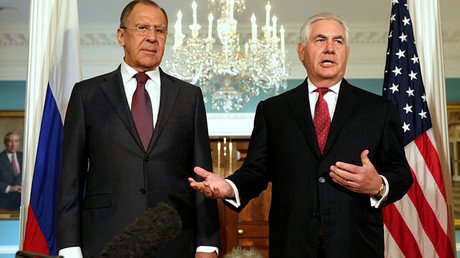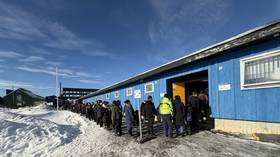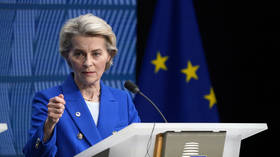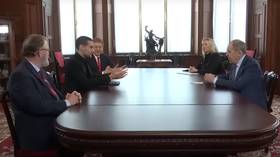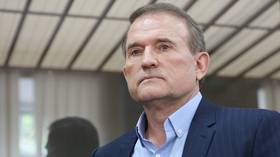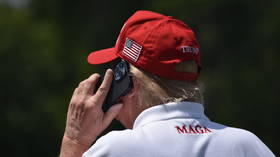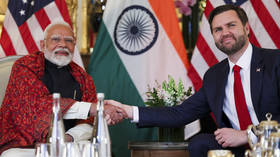‘Russians find any place they can make our lives more difficult’ – CIA chief
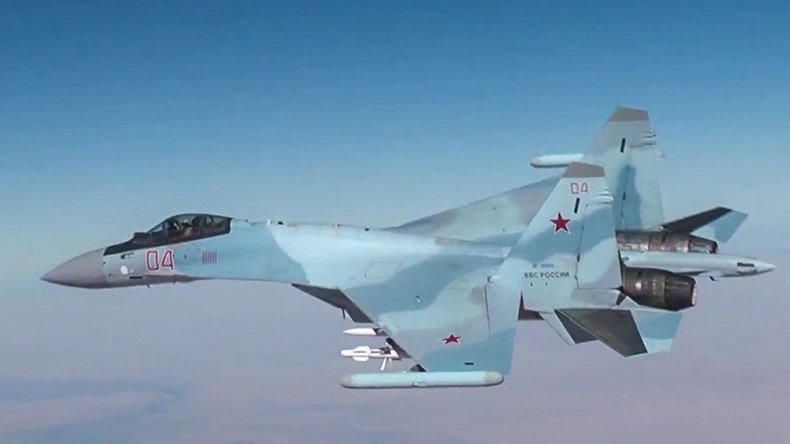
CIA Director Mike Pompeo has downplayed Russia’s role in the Syrian operation, saying there is only “the most minimal evidence” that Russia is pursuing a serious strategy there.
US-Russian relations cannot be unambiguously characterized, the US intelligence chief said at the Aspen Security Forum on Thursday. While stating that the landscape in Syria has “fundamentally changed” since Russia entered into the country, he said that its interests are not the same as America’s.
“We certainly are trying to find places where we can work alongside the Russians, but we don’t have the same set of interest there. So from intelligence perspective, we’re staring at the places we can find to achieve American outcomes in Syria – the things in our country’s best interest and not in theirs,” Pompeo told New York Times columnist Bret Stephens at the forum in Aspen, Colorado.
Among the list of US “friends” in the region, the CIA director mentioned the UK, France, and the Gulf states, while leaving out Russia.
Pompeo also downplayed Russia’s contribution to the fight against terrorism in Syria, saying that Moscow only enjoys a “warm water naval port” and loves “to stick it to America.” Noting that Russia is not going to withdraw from Syria, he said that there is only “the most minimal evidence” that Russia is pursuing a serious strategy there.
“I think they find any place that they can make our lives more difficult, I think they find that’s something that’s useful to them. From intelligence perspective, it’s also clear that they have the intention of remaining there.”
Russian Senator Konstantin Kosachev referred to the allegations as “lies or incompetency,” saying that the CIA chief was either intentionally trying to mislead the American leadership and public, or the intelligence agency lacks professionals with adequate sources on the ground.
Pompeo’s statement was also challenged by Iraqi Vice President Nouri Maliki, who said that without Russia, “the region would be fully destroyed,” Sputnik reports, citing Maliki.
“Without Russia’s approach to the Syrian issue which differs from the one of the United States, the Syrian regime would have fallen, terrorists would have intensified their actions thanks to this, the regional map would change and in the end it would lead to the fall of Baghdad,” Maliki told Sputnik in exclusive interview.
Despite all the differences, Pompeo believes that “it would be the wrong thing to turn our back” on Russia, as it is necessary to obtain and share information “to help them take down these terror threats that present risks to America.”
“If Russia has the information that can help us fight the CT [counter-terrorism] fight around the world, it’s my duty, not only the right thing to do, to work with them.”
On the other hand, America has interests “larger than just Syria,” apart from defeating Islamic State (IS, formerly ISIS, ISIL), according to Pompeo, who said that Washington wants to have a “stable Middle East to keep America safe.”
A stable Syria cannot exist under the Assad regime, the CIA director said, noting that he was speaking from an intelligence perspective, not a political one, while calling the Syrian leader “the puppet of the Iranians.”
Pompeo, who has been a strong critic of the Iranian nuclear deal signed by the Obama administration, said that while the accord might have had marginal short-term benefits, it does not allow the identification of “all the things that Iran might be up to.” As a result, Washington is focused on finding ways “to push back against Iran” in other spheres, while Tehran tries to be a “kingpin” in the Middle East, using Hezbollah.
Iranian compliance with the nuclear agreement does not add up to pursuing the goals the accord was designed for, the CIA director said, comparing Iran to “a bad tenant.”
“They don’t pay their rent, you call them and then they send a check and it doesn’t clear and then they send another one,” he said.
“And then the next day there’s an old, tired sofa in the front yard and you tell them to take it away, and you know they drag it to the back. This is Iranian compliance today: grudging, minimalist, temporary.”
Nevertheless, Pompeo promised “a fundamental shift in policy” towards Iran as soon as “we have our strategy in place.”

